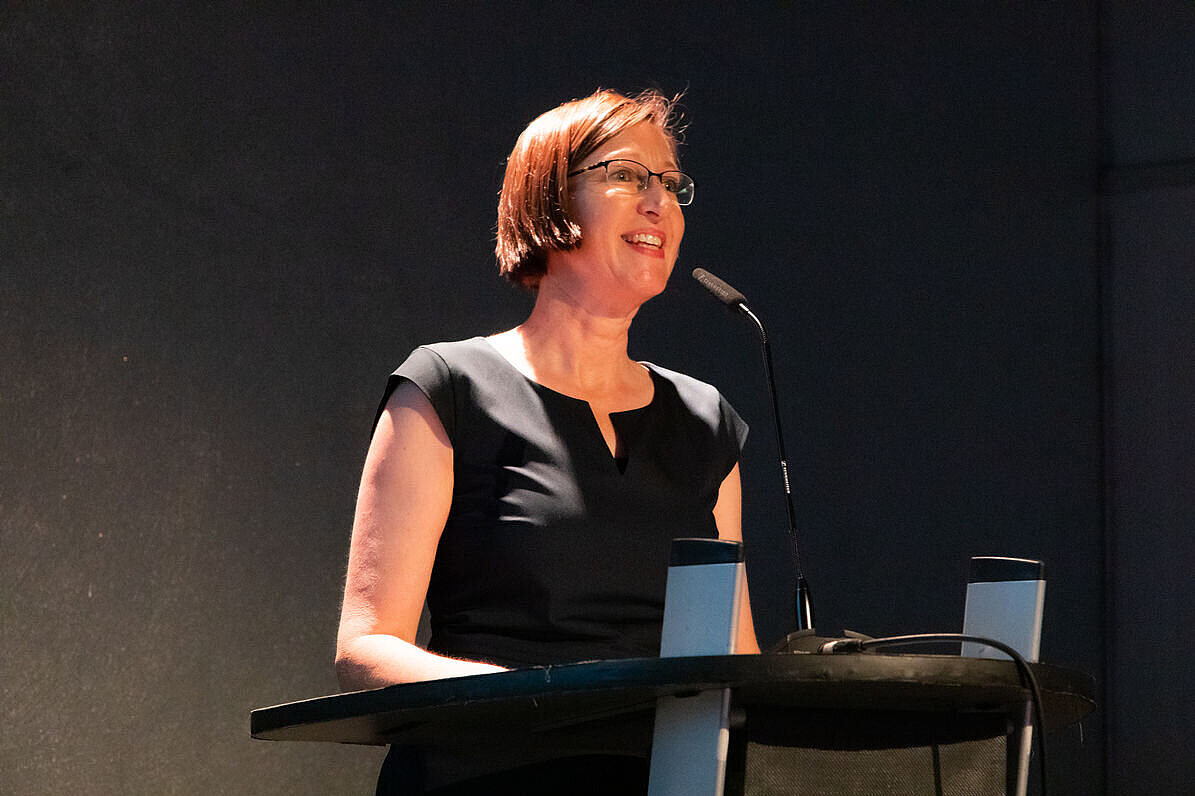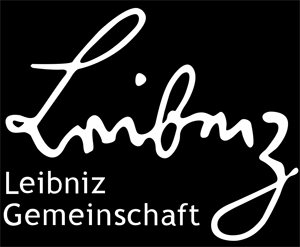The farewell interview was conducted by Anja Wirsing.
Numerous projects were planned and implemented under your leadership as Managing Director. What were your highlights?
There were so many great projects! When I first joined the FVB, I was bombarded with thoughts and ideas. It wasn’t necessary to spark charge – there were so many ideas out there. I was highly impressed.
A major highlight was the modernization and digitalization program for the administration. First of all, we had to think through the processes carefully; only then did we start to digitalize them. The added value of the alliance particularly became evident at this point – joining forces to reflect on administrative processes and optimize them. The pandemic was the acid test. We were able to switch to “remote” overnight – a major success.
The executive program developed internally at the FVB is a particularly pleasing overarching project. We started offering this program to our heads of department, research group leaders and new directors in 2015; it has also been evaluated internally – with positive results. The participants benefit greatly from being able to discuss leadership issues together, and from getting to know and support each other across institute boundaries.
I would also like to mention the extensive renovation program for our buildings, as well as our sustainable building management, which we tackled collectively.
A refreshing highlight was our 25th anniversary, which we celebrated at the Urania with a kaleidoscope of science and at the Kulturbrauerei with a summer party. That was a highly successful science communication format – enabling interaction in a colorful, casual setting with many guests earned us a lot of positive feedback and helped put the FVB in a new, different light.
And finally – without them, it would all be meaningless: the FVB has excellent institutes, as evaluations repeatedly confirm. An enormous amount of third-party funding was acquired, and the FVB grew substantially. Not only did the administration manage to cope with this growth, it also succeeded in modernizing itself at the same time. This was only possible thanks to our staff’s great commitment and high level of competence.
You are always open to new ideas and approaches – also in all matters related to administration. What do you consider to be the essence of a modern science administration?
Science – whether in the lab, in the field or in the office – has a lot to do with entrepreneurship and continuous learning. After all, science always starts out in uncharted waters. The role of science administration is to create the best possible conditions for research. A modern administration is able to respond quickly and effectively to new challenges. To do this, it must understand the needs of researchers, have a confident command of the applicable legal framework, and have the aspiration to use and shape this framework, keeping its sights firmly set on the objective: How can we facilitate scientific work, and support project objectives? The entrepreneurial spirit of administrators is important in this respect, i.e. they need to take their own initiative to search for possibilities. Digitalization is also only a means to an end, but ideally helps by relieving us from simple routine tasks.
I believe that the mindset is fundamental – we need an “enabling culture”. The system of public administration tends to focus on avoiding making mistakes that could occur as a result of taking action – but in many cases, the biggest mistake is to do nothing. The current pandemic is a very clear illustration of this. As I see it, we could be bolder. I believe that this enabling culture and the Joint Administration’s broad expertise have contributed to the scientific success of the FVB institutes.
Science and administration work very differently – they do not always understand each other. How can they ensure successful cooperation?
It is important to remain in close liaison – science and administration must not be allowed to go their separate ways. They both work hand in hand to achieve project objectives and produce research results. FVB-wide training has proved invaluable in developing an understanding of what is special about science administration. Our apprentices act as intermediaries between the different units of the FVB, between science and administration. This could be taken to a higher level, with a staff exchange and rotation scheme, for example.
Together, we can also further develop the framework conditions for science. One example of this is our proposals for improving joint appointment procedures, which were incorporated into the Berlin Coalition Agreement and, ultimately, into the Berlin Higher Education Act.
The FVB institutes are very diverse in terms of their thematic focus. You always viewed their heterogeneity as a strength. How does the diversity of the FVB make it strong?
I personally find it much more interesting when things are colorful and diverse. It’s exciting to implement all kinds of research needs – from the LakeLab to the cleanroom.
The way of thinking at the FVB is also diverse – among the Executive Board, the researchers, and the many different professions represented in the alliance. I am utterly convinced that a systemic mindset, which differs so radically from one discipline to another, and a constant change of perspective helps us all to solve problems more effectively. And it is precisely because of this diversity of fields that the Joint Administration has a whole array of competencies that a single institute could never have. It is no coincidence that we receive so many requests for support from external organizations. I envisage a field of activity for the FVB here that could be expanded.
And our vast portfolio of topics – from quantum physics and drug discovery to biodiversity – offers many opportunities for engaging with the public and with decision-makers. It also makes it easier to highlight the social relevance of science. As such, the FVB acts as an “amplifier” for its institutes: thanks to the FVB, they can make use of existing contacts and find answers to all kinds of questions, enabling the alliance to gain greater visibility.
You worked for more than eight years as a woman heading one of Berlin’s largest non-university research organizations. What were your experiences? What would you like to share with other women at the FVB?
I was often the first woman to be appointed to certain jobs and committees, whether as a manager or as a member of the central IT advisory board of a science organization. I had already experienced a similar situation at school, given that I was the only female in the advanced chemistry course. It was different when I studied biology, but there were virtually no female professors. At Humboldt-Universität zu Berlin, I had the rare good fortune to serve as Personal Assistant to one of the first female university presidents in Germany. It was there that I realized that, for some, it was hard to imagine a woman in a managerial position. Being a qualified natural scientist with children, a husband and career ambitions, I am often asked to talk about my experience as a woman in a leadership role. I enjoy sharing my experiences because role models are important. This is why I am delighted about the FVB’s Marthe Vogt podcast, which gives young female researchers the possibility to showcase their work.
What I would like to pass on to all women at the FVB: have the courage and make every effort to realize your career dreams, even if it means having to make sacrifices. Yes it is hard to develop professionally and have kids at the same time, but it’s worth it! And please don’t listen to what others are concerned about, but look for people who can offer support. I would also like to recommend gender research studies from the past 10 or 20 years. It is worth exploring the topic to come to terms with the different roles in life as a woman (or a man).
You have always strongly emphasized the added value created by the FVB – synergies in science, administration and governance. What wishes do you have for the FVB as you say goodbye?
The FVB generates added value through interaction, exchange and collaboration. All members of the alliance must embrace this and keep it going, because a community needs to be maintained. I would like to see the FVB’s practice of give and take have a positive impact on its members, and I hope that the strategic benefits of the network will be appreciated and enhanced.
Translation: Teresa Gehrs
Contact
Anja Wirsing
FVB Press Office
Email


